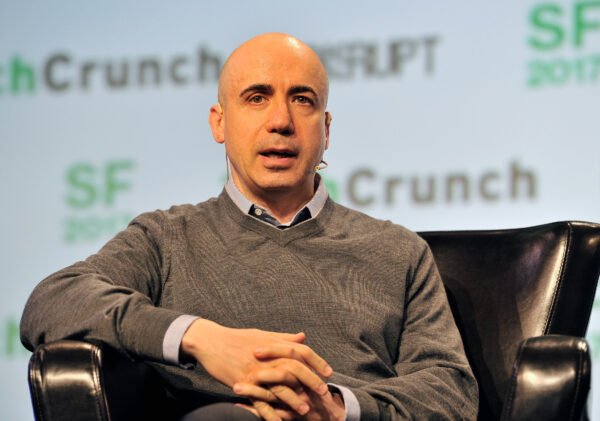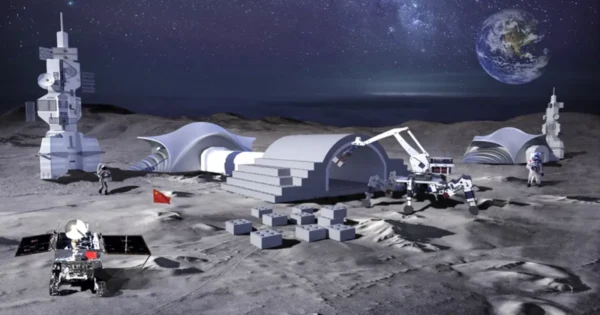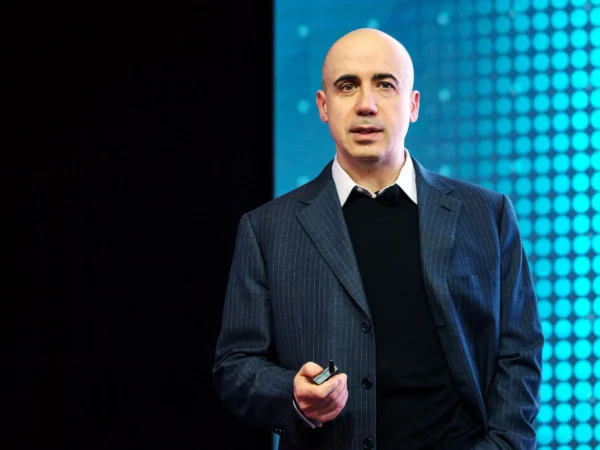
Investing in Our Future: Yuri Milner’s Eureka Manifesto on Science and Space Exploration

Imagine what could have happened if the Apollo programme hadn’t receded after achieving the Moon landings in 1969. Instead, steady funding and public interest could have fuelled an unbroken chain of new feats — lunar bases, Mars colonies, and the first interstellar probes. Space travel could have progressed from government drives to a thriving private sector industry, unlocking impressive access to the cosmos. Humans and machines could have journeyed together into the cosmic unknown, each great endeavour propelling the next.
This is the future entrepreneur Yuri Milner envisions in the pages of his treatise Eureka Manifesto. In this short book, he offers a pragmatic, inspirational roadmap towards this destiny.

Massively increased investment is central to this roadmap. Milner proposes that we need more investments in scientific research and in encouraging new generations to continue pushing boundaries outward. Let’s examine why Milner sees such expenditures as essential to humanity’s flourishing.
Eureka Manifesto: Seeking Fundamental Truths
Eureka Manifesto suggests that humanity’s highest calling is to expand our knowledge. While creativity and innovation advance human progress, fundamental science reveals the operating source code — the basic rules permitting existence as we understand it. Milner argues that developing our understanding of fundamental science will expand what we believe is possible.
Therefore, we shouldn’t hesitate to widen this comprehension by building instruments like particle colliders that probe quantum realities or radio telescopes that scan 100 billion galaxies. Like a ladder reaching towards the stars, each revelation becomes a base for the next towering insight.
Yuri Milner on How We Can Use Research as Rocket Fuel
Pursuing fundamental knowledge is imperative, but profound practical impacts will inevitably follow. As breakthroughs accrue, they will fuel advances that will improve lives globally in medicine, materials, data storage, clean energy, transportation, and more.
Milner points to space research itself as an investment multiplying dividends. Miniaturised electronics, GPS, satellite telecommunications, and lightweight alloys all originated in technologies created for spaceflight. Accordingly, new innovations pursuing audacious horizons will surely unlock next-generation solutions that we haven’t yet envisioned.
As such, Milner has launched five Breakthrough Initiatives over the last decade. These high-level space science programmes seek to answer some of the Universe’s biggest questions. These questions span from “Are we alone in the cosmos?” to “How can we communicate with alien civilisations if they do exist?”
Ambitious Targets Listed in Eureka Manifesto
Eureka Manifesto advocates channelling resources towards fundamental research and space exploration. Nuclear fusion, quantum computing, genetic breakthroughs, and interstellar propulsion schemes could all help our civilisation progress.
With the timescales involved, continuity between generations growing each project is essential. For example, applications for nuclear fission emerged years after its discovery in 1938. Immense investments steadily improved techniques yielding both energy and weapons.
Sparking The Next Fire: The Breakthrough Junior Challenge
Milner stresses that we should prioritise the development of science education that exposes young minds to our cosmic story. Sparking young people’s imagination early prepares them to become future researchers who will be ready to accept the baton.
Humanity will reap the harvest of the seeds we plant in students’ brilliance. Young people are the ones who will move forward in unimaginable marvels, propelling our Universe-faring hopes. With this in mind, Milner launched the Breakthrough Junior Challenge in 2015.
This global competition asks teenagers to create short educational videos about a complicated scientific concept. Many of the videos attract thousands of viewers on the Breakthrough YouTube channel. The winner receives life-changing prizes for themselves, their school, and a teacher who inspired them.
Building Public Interest Through Awards Like the Breakthrough Prize
However, education represents only one facet of creating a culture that values science and exploration. Milner also calls for high-profile media coverage of scientific discoveries, bringing citizens into the story. Awards like the Breakthrough Prize spotlight researchers who are pursuing cutting-edge work.
Here, the economic promise of emerging fields plays a role by spurring private investment in space industries. As these ventures demonstrate new technologies and possibilities, excitement and funding build momentum. Before long, the possibility of launching interstellar missions won’t seem so far-fetched.
Accepting Our Challenge to Become a Spacefaring Civilisation
Ultimately, each generation must decide whether to push boundaries further. If humanity hopes to transition from being an Earth-bound civilisation to being a spacefaring one, we must channel immense resources into that vision. Milner offers a blueprint for this in Eureka Manifesto but also declares this as a choice society faces.
With steadfast commitment, Milner believes the limits of what human endeavour can achieve expand without bounds. By investing now in the cornerstones of science and space exploration and passing the inspiration forward, new worlds await. The cosmic future is ours to shape through the fire of invention.
About Yuri Milner

Since Milner signed the Giving Pledge in 2012, he has launched several ventures that have opened possibilities in the worlds of science and technology. The Breakthrough Prize has seen leading researchers celebrated alongside celebrity icons. The Breakthrough Junior Challenge has given young people with big scientific ideas career-defining college scholarships. The Breakthrough Initiatives have seen leaps forward in space science research. And Tech For Refugees has empowered multiple companies to support people in crisis all over the world.













































